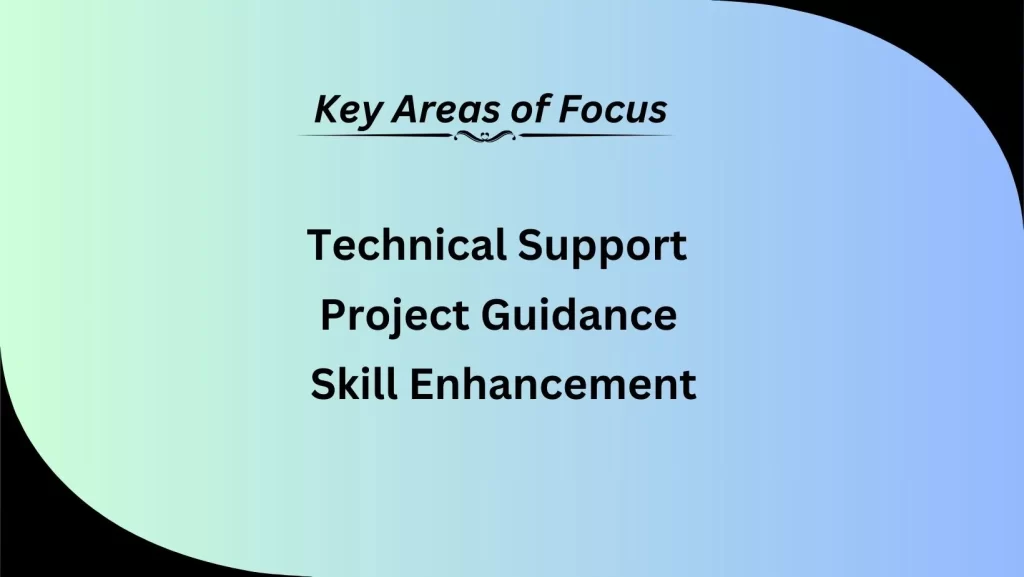Introduction
Overview of Java Programming Language
Java is an extensively used, item-oriented programming language that changed into created by means of Sun Microsystems in 1995 and is now owned with the aid of Oracle Corporation. It is known for its platform independence, meaning that Java programs can run on any tool or operating system that has a Java Virtual Machine (JVM) installed. Java’s syntax is similar to that of C++, making it exceptionally easy for developers to study and use.
Importance of Practical Application in Java Development
Practical application plays a critical function in Java development for numerous motives. Firstly, it lets in developers to position theoretical know-how into practice, helping them apprehend concepts higher and hone their programming capabilities. Additionally, realistic tasks offer treasured palms-on experience, permitting developers to encounter real-world challenges and discover ways to solve them efficiently. This realistic revel in is important for constructing confidence and expertise in Java improvement.
Purpose of Job Support Services for Java Developers
Job help services for Java builders are designed to offer assistance and steerage to experts operating in Java-related roles. These offerings might also encompass mentoring, troubleshooting, code critiques, and on-the-job training. The cause of such guide is to help developers conquer demanding situations they’ll face in their initiatives, improve their talents, and beautify their productivity. By offering ongoing assist and resources, those services ensure that Java developers can carry out their roles efficiently and deliver great solutions.
Understanding the Gap
Challenges Faced by Developers Transitioning from Learning to Real-World Application
Transitioning from mastering Java in a controlled environment to making use of it in real-global tasks can present several challenges for developers. One not unusual venture is adapting to the complexities and constraints of actual improvement environments, which frequently differ considerably from the simplified scenarios encountered in educational settings. Developers might also warfare with troubles together with integrating their code with existing systems, dealing with dependencies, and dealing with actual-world facts and user interactions. Additionally, the strain to deliver effects within assignment cut-off dates can be daunting for those new to the sector.
Discrepancies between Academic Knowledge and Industry Requirements
Another great gap arises from discrepancies among the theoretical understanding received in educational settings and the practical abilities demanded with the aid of the industry. While instructional courses provide a strong foundation in Java syntax, algorithms, and facts structures, they’ll no longer effectively cowl present day improvement tools, frameworks, and first-class practices used inside the industry. As a result, developers may additionally find themselves missing the abilities had to meet the demands of actual-world projects, leading to a disconnect between educational preparation and industry expectancies.
Impact of Lack of Practical Experience on Job Readiness
The loss of sensible experience can considerably effect a developer’s readiness for employment inside the Java development field. Without hands-on revel in working on actual-international tasks, builders may struggle to use their theoretical information effectively and effectively. This lack of practical experience also can avert their potential to collaborate with team contributors, talk efficaciously, and troubleshoot problems independently. As a end result, builders may additionally face demanding situations in securing employment or advancing their careers in the aggressive activity market. Therefore, bridging the gap among theoretical know-how and practical utility is important for making sure that builders are properly prepared for the needs of the industry.
The Role of Job Support
Definition and Scope of Java Job Support Services
Java activity aid offerings encompass more than a few assistance furnished to builders to assist them triumph over demanding situations encountered in their roles. This support can include technical guidance, mentoring, troubleshooting assistance, code opinions, and on-the-process training. The scope of Java job help offerings extends to addressing particular technical issues, supplying steerage on pleasant practices, and supporting builders improve their capabilities and productivity in Java improvement tasks.
Objectives of Job Support Programs
The goals of Java activity guide programs are multifaceted. Firstly, they aim to help developers in overcoming obstacles they come upon while working on Java initiatives, thereby making sure the a hit finishing touch of responsibilities and initiatives. Additionally, those programs are searching for to bridge the distance among theoretical understanding and realistic utility by means of supplying palms-on assistance and steering. Furthermore, task support applications intention to decorate builders’ abilities, confidence, and activity readiness by means of supplying ongoing help and sources tailored to their desires.
Benefits for Both Developers and Organizations
Java task assist offerings offer several benefits for both developers and groups. For developers, those offerings provide precious assistance and guidance in navigating complex improvement demanding situations, improving their capabilities, and advancing their careers. By receiving personalised support and mentorship, builders can enhance their productivity and activity performance, main to expanded job satisfaction and profession boom opportunities.
For groups, Java task guide programs make a contribution to progressed project results, decreased improvement time, and higher pleasant deliverables. By making sure that developers have the support they want to triumph over technical hurdles and stay on track, businesses can reduce task delays and price overruns. Additionally, making an investment in process aid offerings demonstrates a dedication to employee development and retention, main to a greater skilled and influenced team of workers. Overall, Java activity support services benefit both developers and corporations by means of fostering skill improvement, productiveness, and success in Java improvement projects.
Key Areas of Focus

Technical Support
Troubleshooting Code Issues
- Providing help in figuring out and resolving errors or bugs in Java code.
- Offering steering on debugging techniques and tools to diagnose issues successfully.
Guidance on Best Practices and Design Patterns
- Advising developers on adopting industry quality practices for Java improvement.
- Providing insights into commonly used design patterns to improve code clarity, maintainability, and scalability.
Assistance with Debugging and Optimization
- Assisting builders in optimizing Java code for higher performance and performance.
- Offering suggestions and techniques for profiling and reading code to become aware of regions for optimization.
Project Guidance
Assistance with Project Setup and Configuration
- Helping developers set up improvement environments and configure tools and frameworks for Java projects.
- Providing guidance on task structure, dependencies control, and model manipulate.
Code Review and Feedback
- Conducting thorough code critiques to pick out regions for improvement, potential bugs, and adherence to coding requirements.
- Providing constructive comments to builders to help them decorate the best and maintainability in their code.
Mentorship on Project-Specific Challenges
- Offering one-on-one mentorship to address project-specific demanding situations and boundaries.
- Providing guidance on architectural decisions, implementation strategies, and hassle-fixing techniques.
Skill Enhancement
Training on Advanced Java Topics
- Conducting education sessions on advanced Java standards together with multithreading, concurrency, and reminiscence management.
- Offering workshops or seminars on specialized subjects like Java Enterprise Edition (EE) or Java Virtual Machine (JVM) internals.
Hands-on Experience with Frameworks and Tools
- Providing possibilities for developers to gain sensible revel in with famous Java frameworks like spring, Hibernate, and Apache Kafka.
- Offering fingers-on workshops or initiatives to familiarize builders with development gear, IDEs, and construct automation gear.
Continuous Learning and Professional Development
- Encouraging developers to live updated with the state-of-the-art improvements in Java technology through on-line publications, webinars, and conferences.
- Providing access to resources and support for pursuing certifications or advanced levels in Java programming and associated fields.
Case Studies
Real-world Examples of Developers Benefiting from Job Support Services
Developer X: Developer X, a recent graduate in laptop science, struggled to transition from educational projects to actual-international Java improvement. Through a task aid application, they received personalized mentoring and technical steerage. As a result, Developer X won confidence, progressed their coding skills, and successfully secured a junior Java developer position.
Team Y: Team Y, a software program development group at a tech organization, faced demanding situations in optimizing the performance of their Java utility. With help from a task support service provider, they received expert recommendation on code optimization strategies and performance profiling equipment. This guide led to massive improvements inside the application’s velocity and performance, improving user experience and delight.
Success Stories Demonstrating the Impact of Bridging the Learning-Application Gap
Company Z: Company Z struggled with a excessive turnover rate amongst junior Java developers because of their lack of realistic revel in. By implementing a job support program, they supplied ongoing mentorship and education to new hires. As a result, retention quotes stepped forward, and developers became extra talented in tackling actual-global challenges, leading to better productivity and mission fulfilment.
Developer A: Developer A, who were working in Java development for numerous years, sought to beautify their abilities and boost their career. Through a process aid program specializing in superior subjects and mentorship, Developer A gained know-how in new technologies and structure styles. This enabled them to tackle extra tough projects and ultimately circulate into a senior developer position.
Lessons Learned and Best Practices from Case Studies
Tailored Support: Providing personalised mentorship and help tailored to the person needs and skill tiers of builders is critical for maximizing the effectiveness of activity aid applications.
Continuous Learning: Encouraging developers to interact in continuous getting to know and expert improvement enables them live updated with the present day trends and improvements in Java improvement.
Practical Experience: Offering hands-on revel in with real-global initiatives, frameworks, and gear is vital for bridging the space between theoretical information and practical software.
Choosing the Right Job Support Program
Factors to Consider When Selecting a Job Support Service Provider
- Reputation and Experience
- Range of Services Offered
- Quality of Mentors and Trainers
- Flexibility and Customization Options
- Success Stories and Testimonials
Evaluation Criteria for Assessing Program Suitability
- Alignment with Learning Goals and Objectives
- Cost and Affordability
- Accessibility and Availability of Support
- Track Record of Success
- Feedback and Reviews from Past Participants
Tips for Maximizing the Benefits of Job Support
- Clearly Define Learning Objectives
- Actively Participate and Engage with Mentors
- Take Advantage of Available Resources and Support
- Seek Feedback and Iterate on Learning Strategies
- Apply Learned Skills to Real-global Projects and Challenges
Future Trends and Opportunities
Emerging Technologies Shaping the Java Ecosystem
Evolving Job Roles and Skill Requirements in Java Development
Potential Areas for Expansion and Improvement in Job Support Services
Java job support services from India offer personalized mentoring and technical guidance to developers, bridging the gap between theoretical knowledge and practical application. With a focus on hands-on experience and continuous learning, these programs help developers enhance their skills and advance their careers in Java development. Leveraging the expertise of experienced mentors, Java job support from India ensures that developers receive tailored assistance to overcome challenges and succeed in real-world projects.
Conclusion
Recap of the Importance of Bridging the Gap between Learning and Application in Java Development
Call to Action for Developers to Seek Out Job Support Opportunities
Final Thoughts at the Future Outlook for Java Job Support Services

